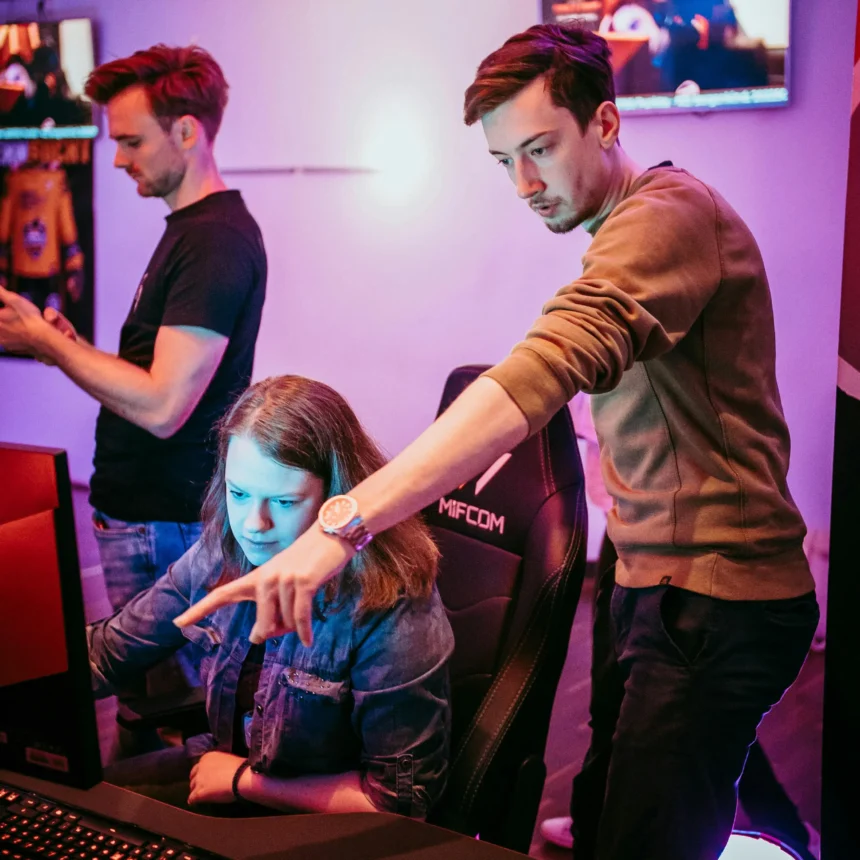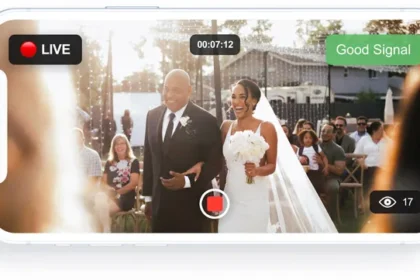Gaming to Get Ahead: Why Employers Now Value Your K/D Ratio
If you ever thought your late-night gaming sessions were a waste of time, 2025 wants to have a word. Turns out, your K/D ratio might just be the job-market flex you never saw coming. In a wild twist, the digital world is colliding with the professional one—gaming jobs are rising, and employers suddenly care about more than your GPA. Welcome to the era where clutching in Valorant could land you a clutch spot in the real-world workforce.
Gamers Wanted: How the Job Market Got Its Head in the Game
It’s no longer a punchline: “I’m a gamer” is now a legit résumé boost. Walk into a job interview, and don’t be surprised if someone asks about your “K/D ratio.” What’s up with this hiring plot twist? The answer: gaming jobs are booming, and the skills you build in-game are now the hottest soft skills IRL.
In fact, “gaming jobs” is one of the fastest-growing career keywords on LinkedIn, with long-tail queries like “jobs for gamers,” “K/D ratio in resume,” and “skills employers value from esports” surging on Google, TikTok, and even X (formerly Twitter). The stereotype of gamers being anti-social or lazy is officially retired—thanks to the new breed of digitally fluent, team-driven, battle-tested hires.
The K/D Ratio Explained: From Headshots to Hiring Power
For the non-gamers (hi, Mom), “K/D ratio” stands for Kill/Death ratio—basically, how many wins you rack up versus fails in shooter games like Call of Duty, Apex Legends, or Valorant. A high K/D ratio? You’re cool under pressure, strategic, and fast on the trigger. A low K/D? You’re probably having fun, but you’re also learning from every loss.
So why does your K/D ratio matter outside the virtual world? Employers are starting to recognize that in-game victories reflect real-world skills: quick decision-making, stress management, communication, and the ability to learn from failure. Think of it as digital proof that you thrive under pressure and don’t tilt when the heat is on.
“My hiring manager legit asked for my K/D in Apex Legends. Never been prouder of those 2,000 hours.” —@bossfrag, TikTok
“Put my gaming tournament wins on my resume and got a callback from a fintech startup. Leveling up, literally.” —u/ctrlshiftwin, Reddit
“Gaming jobs aren’t just pro esports. Employers want creative problem-solvers, and gamers have been training for that since Day One.” —@bytebender, X
Leveling Up the Job Search: How Gaming Jobs Went Mainstream
Gaming is no longer a side hustle or a secret shame. Esports tournaments are filling stadiums, and some high schools now have varsity gaming teams. It’s not just about playing—it’s about collaborating, leading, and adapting, all skills employers crave.
Timeline: From LAN Parties to Leadership Roles
- 2015–2018: Esports explodes on Twitch and YouTube; major colleges offer scholarships for gamers.
- 2019–2023: Remote work and digital communication go mainstream. Recruiters realize Discord and raid leads teach real leadership.
- 2024–2025: Gaming jobs, esports resumes, and K/D ratios start showing up in hiring conversations—even outside tech.
If you want a deeper dive into how automation and digital skills are reshaping work, check out BigTrending’s piece on AI co-workers in the office.
Employers’ New Obsession: What Gaming Really Teaches You
Gaming is more than reflexes and trash talk. It’s a crash course in:
- Teamwork and leadership: Raiding with 20 strangers and coming out alive? That’s leadership under fire.
- Pressure management: Last-second clutches are now interview stories.
- Digital communication: Gamers master remote teamwork before it was cool.
- Resilience: Losing a ranked match stings. Getting back in the queue? That’s grit.
Employers in tech, marketing, and even health care now ask about your gaming experience. They value your K/D ratio as proof you can handle stress, adapt fast, and keep your cool when the stakes are high.
“My boss noticed my strategic calls in Overwatch and asked me to run the next product launch. Turns out, my gaming background was the edge.” —@launchlord, TikTok
“I put ‘raid leader’ on my resume as a joke, and it became a real talking point. Gaming jobs are real!” —u/lootlogic, Reddit
Beyond the Joystick: The New Soft Skills Employers Value
What are the top gaming-born skills that hiring managers are scouting for?
- Decision-making in fast-paced environments
- Multitasking under pressure
- Resource management (hello, project budgets!)
- Resilience after setbacks
- Remote communication (Discord, Zoom, Slack—same skills, new channels)
- Creative problem-solving
- Rapid learning and adaptation
- Strategic planning (think: boss battles, but for business)
Esports Experience as a Career Asset: Flexing Your K/D Ratio
Not everyone’s going pro, but the “esports effect” is real. Today, you’ll find employees leading gaming guilds, organizing online tournaments, or producing gaming content on the side—all of which double as résumé boosters.
Pro tips for gaming the job market:
- Mention leadership in gaming: “Led a team of 10 through competitive raids with tight deadlines.”
- Highlight communication: “Coordinated remote teams using Discord and real-time strategy.”
- Tie it to business: “Adapted strategies based on live analytics, similar to managing KPIs.”
Culture Shift: Gaming as the New Ivy League?
Let’s get real—most managers don’t care about your 10th prestige rank, but they do care about results. Gamers bring a growth mindset, the ability to handle rapid change, and a willingness to learn on the fly. That’s gold for companies battling constant disruption.
Gaming has become a shared language for a new generation of workers. It’s a source of social capital, team bonding, and, increasingly, professional credibility. From tech to retail to creative agencies, “What do you play?” is replacing “Where did you go to school?” in interviews.
“Taught myself Java so I could mod Minecraft. Ended up coding for a living. Gaming jobs FTW.” —@pixelpush, X
Bullet List: How to Make Your Gaming Skills Pop on a Resume
- Quantify your teamwork: “Coordinated 5-person squads for ranked matches with 80% win rate.”
- Show leadership: “Organized 50+ player raids; delegated roles, resolved conflicts in real-time.”
- Emphasize learning: “Mastered new games/patches monthly, translating to rapid tech onboarding.”
- Highlight results: “Ranked in top 5% globally; applied analytics to track and improve performance.”
The Future of Gaming Jobs: Where Are We Headed?
With remote work, automation, and gamification of corporate training, expect your gaming background to become even more valuable. Some companies now host onboarding in virtual worlds, others scout for talent in esports leagues, and digital badges are starting to rival diplomas.
For a cultural deep dive on digital skills and hiring, don’t miss this Wired feature on the gamification of workplace skills.
FAQ: Gaming Jobs, K/D Ratio, and Skills Employers Value
Q: Can my gaming skills really help me get a job?
A: Absolutely! Many employers value gaming skills like teamwork, decision-making, and adaptability—especially in fast-paced, tech-driven industries.
Q: Should I actually put my K/D ratio on my resume?
A: If it’s impressive and you can tie it to real skills (like teamwork or pressure management), it’s a bold move—especially for gamer-friendly companies.
Q: Which gaming skills do employers value most?
A: Communication, leadership, adaptability, analytical thinking, and the ability to learn fast.
Q: What kinds of jobs value gaming experience?
A: Tech, project management, marketing, creative industries, and even some customer-facing roles—anywhere digital agility and teamwork matter.
Want more on the skills shaking up the workforce? Also check out one of our latest trending pieces—it’s a good one!
https://bigtrending.com
Sources:









